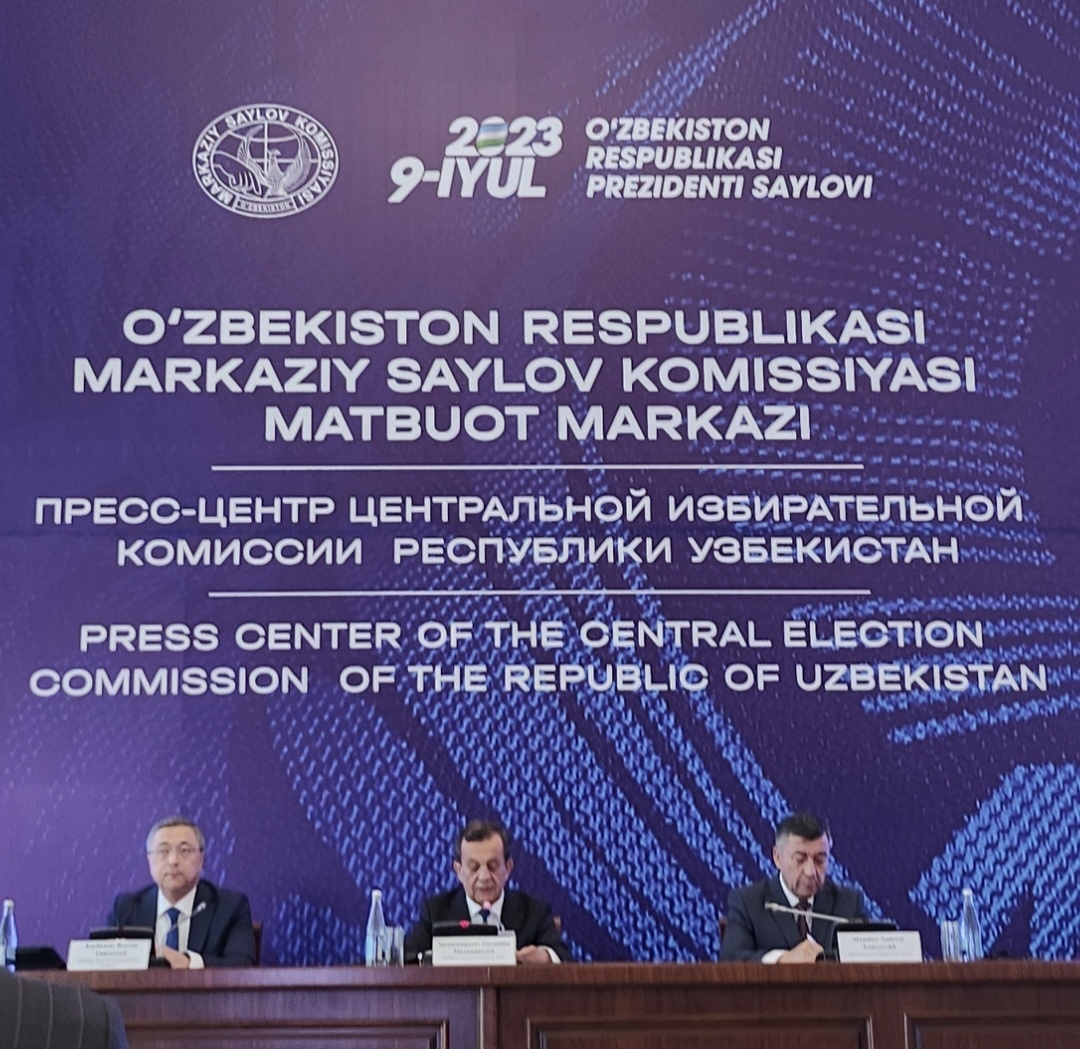 |
Zayniddin Nizamkhodjayev (second from left), chairman of Uzbekistan’s Central Election Commission, speaks during a press briefing on the preliminary election results at the Palace of Symposiums in Tashkent, Uzbekistan, on Monday. (Choi Si-young/The Korea Herald) |
TASHKENT, Uzbekistan -- Uzbekistan President Shavkat Mirziyoyev was reelected for a third term in a much expected landslide victory paving the way for another seven years of rule amid his push for reforms.
The 65-year-old leader won with 87.1 percent of the vote on Sunday, according to preliminary results released by the Central Election Commission. The snap election took place following a constitutional change by referendum in April that reset his term count and extended terms from five to seven years.
Mirziyoyev took office in 2016 upon his predecessor’s death and was on a second and last term of five years when he called for the early election, which could lay the groundwork for two more seven-year terms ending in 2037.
Since 2016, Mirziyoyev has doubled down on his campaign focusing on boosting foreign trade and investment for the Central Asian nation of 35 million people while improving ties with the outside world.
Mirziyoyev is likely to carry on with closer ties with Russia and China as well as South Korea, Tashkent’s key trade partners. The Uzbek leader, who signed with them deals worth $21 billion last year, is maintaining neutrality on Russia’s war in Ukraine, calling for peace and vowing to abide by Western sanctions.
Domestically, Mirziyoyev liberalized the country’s political system to some extent, having reined in the powerful security services and released political prisoners, according to some observers.
The three candidates who ran against Mirziyoyev were Robaxon Maxmudova of the Justice Social Democratic Party, accounting for 4.4 percent of the vote; Ulugbek Inoyatov of the People’s Democratic Party with 4 percent of the vote; and Abdushukur Xamzayev of the Ecological Party with 3.7 percent of the vote, according to the preliminary results.
The results show around 16 million Uzbeks -- 80 percent of those eligible to vote in Central Asia’s most populous country -- cast their ballots in 10,784 polling stations including overseas booths in 39 countries.
The Central Election Commission highlighted guaranteeing the “constitutional rights” of the Uzbeks, saying about 47 international organizations, 800 observers from overseas and 1,400 representatives from local as well as global media outlets were monitoring the election.
Those with complaints should be “impartial and objective” in the way they bring attention to them, the commission said describing the latest election as in full compliance with international standards.
Referring in particular to the overseas polling stations, Bakhromjon Aloyev, a deputy minister of Uzbekistan’s Foreign Ministry, said that it was a “very big experience” running the elections and all the relevant “legislation” supporting them.
During Sunday’s election, Aloyev told The Korea Herald that he had confidence the election would see little disruption and even if it did, authorities would handle it immediately. The following day, the commission said it had found no irregularity.







